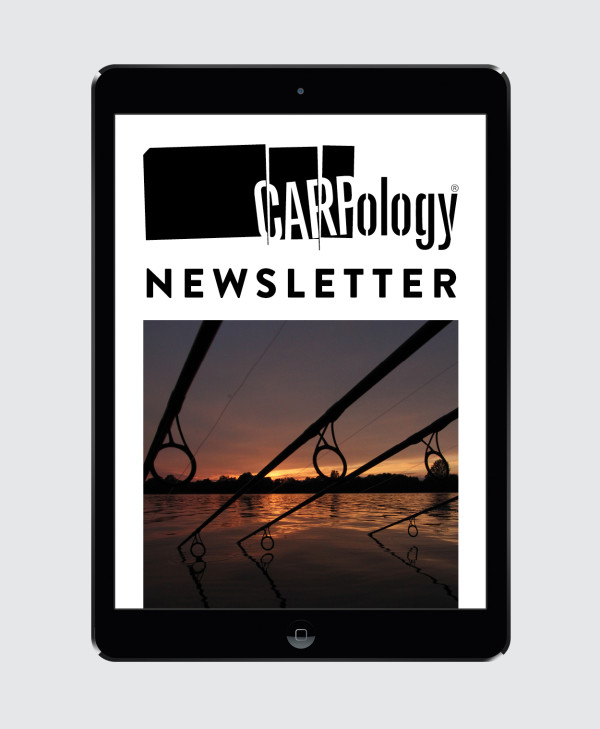Gaz Fareham: Five Public-Water, Euro Trip Essentials
Gaz Fareham reveals his top five must-knows/must-dos when heading out on a Euro adventure.
Public water angling is a different ball game to arriving at a pre-booked lake where you have a pretty good idea of what to expect. With public waters being accessible to all, the chances of turning up and finding the water you had hoped to fish either being very busy, or even un-fishable due to very high or low water levels, is always a possibility. Whilst I almost always have a pretty good idea about where I want to go before setting out and will have done some research beforehand to try and ascertain what conditions are like in the region, I will always have a back-up plan. I’ll have other waters in mind that are within reach, that could be second, third, or even fourth choices. Part of the joy of public angling is the adventure, so cutting loose from a plan can be liberating and really exciting.

Prep is everything!
Preparation is absolutely key. Miles from home, and without a handy tackle shop or Tesco Express around the corner, you are often out on a limb and on your own, especially in the more remote regions in France. Making sure you have spares, tools to fix broken items and plenty of kit to cover different eventualities is essential. I always take reels loaded to the brim with an ultra-tough 0.40mm mono, and spares with 500 metres of 30lb braid. It only takes a big cut-off from a pike angler’s boat or some other disaster at mega-long range for you to lose most of the line from a reel. Having spare bulk spools of both mono and braid in the van is again, essential. A large supply of leads (everything from 2oz to 12oz), plenty of power with fully charged batteries, and a spare outboard and boat are also vital to have with you when you’re 800 miles from home - as I’ve already found out the hard way!


Super-strong kit
Rigs and bait are perhaps the easiest of all the parts of the equation to cater for. As long as you have reliable, strong kit and some quality bait, you’ll be fine. More often than not, the public water carp aren’t that tricky to catch once you’ve found them, so you’re not tweaking and refining things as you might need to back home on an ultra-pressured circuit water. Size 4 and 2 hooks, a minimum 35lb hooklink, simple lead-clip systems and tough snag leaders are all that are really required and what I stick to. As for bait, whilst there are undoubtedly some sharp anglers with top-quality boilies out on those waters, there is also a lot of cheap, bulk bait being used. I almost always use The Krill, but any bait from one of the top UK manufacturers will do the job well. I always have plenty of tigers with me and a selection of large, ultra-tough hookbaits - nuisance species and/or crays can make life a misery if you’re not prepared for them.

Know your spots
Location, location, location! It’s been said so many times that it’s painful to roll out the cliché yet again, but the importance of location on public waters, especially the large ones, can’t be over-emphasised. If you are faced with a few thousand acres, there will likely be hundreds that don’t contain carp, so investing as much time as it takes to try and find some is never a waste. Whether it is obvious signs like shows, coloured water or actual sightings, or more subtle signs like cratered-out areas of lakebed and perhaps shell graveyards that give away areas of feeding activity, you need everything in your favour. Wind direction, prevailing conditions, pressure from other anglers etc. all feed into the equation and hopefully you’ll come out with a decision that puts you on fish. As I mentioned earlier, once you’ve found them, you’ll often catch them relatively quickly. If you’re not catching them therefore, you’re probably not on them.
Keep motivated
Positivity… possibly the biggest key to it all is staying keen and positive. The long trips can be arduous and they can sap your energy and motivation at times, especially when it isn’t happening and you’ve done hundreds of miles and endured days of graft. Keeping at it though, and continuing to look and also stay on your toes are I believe, all key to having some success. If it isn’t happening at one venue, maybe just head off to another. I’ve done trips before where we were 800 miles and 4 waters down before we got our first bite. The only constant is change in this type of fishing. Reacting to what is happening in front of you is important should you want to get the most out of it, from the points of view of both sheer enjoyment and catching. Enjoying the journey is as much a part of it as anything, and if the only aim is to catch bags of big carp, it probably isn’t the sort
of angling for you.
GAZ FAREHAM
Gaz Fareham gives us an insight into his European road trips. What inspired him to venture so far away from the English scene and what his plans are for the future. This film is a great insight into what it takes to fish the wild waters the continent has to offer as well as the rewards that are there for the taking!






